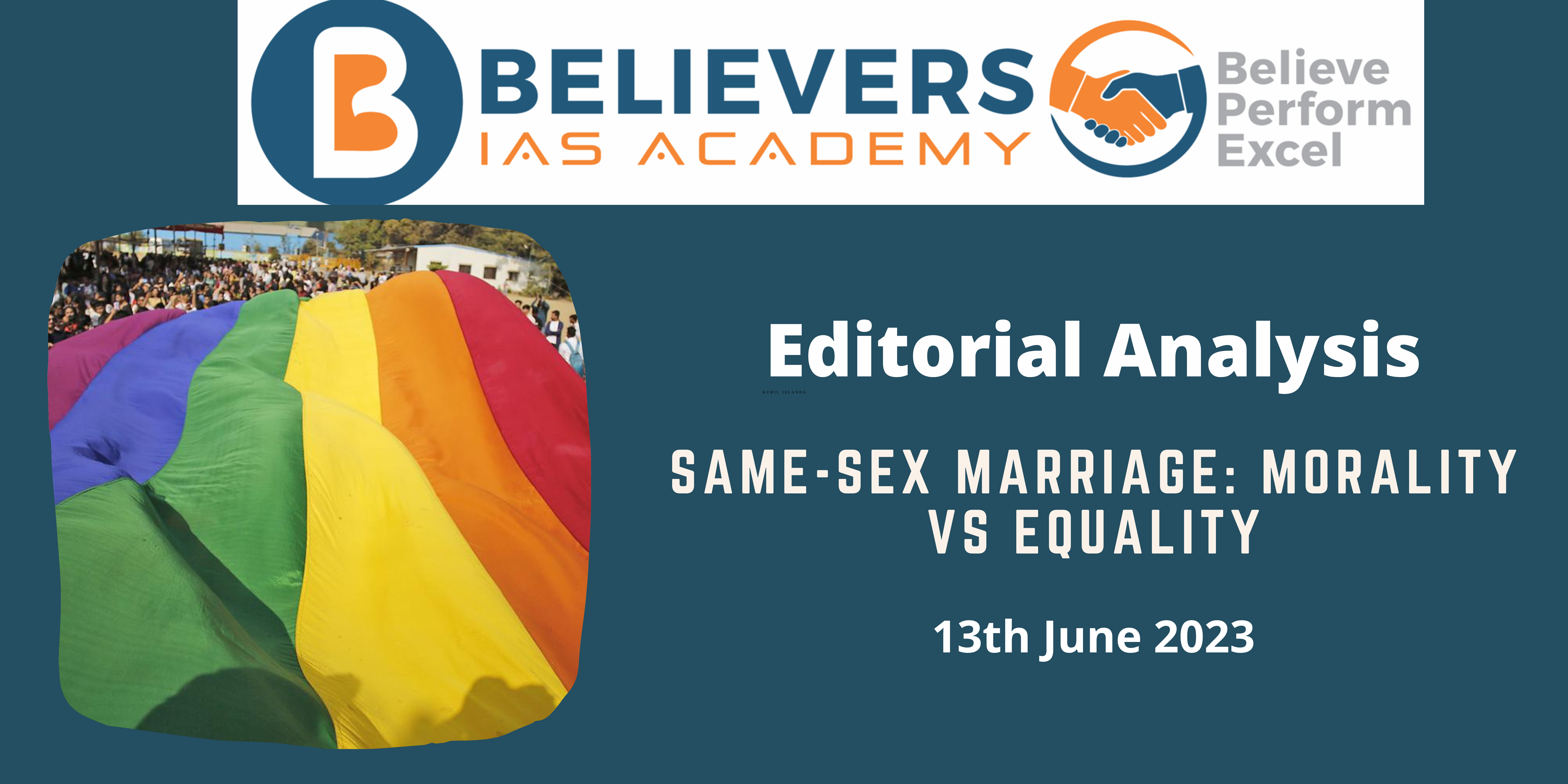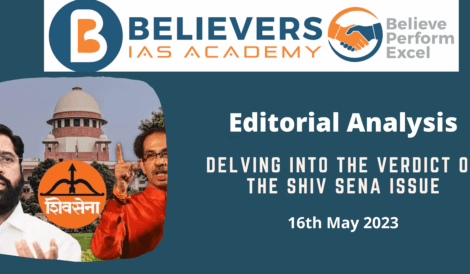Same-sex marriage: Morality vs equality
Context:
One of the foremost philosophers in the world, Michael Sandel, was in India a few days before the Supreme Court of India started its hearings on the same-sex marriage issue to participate in a media group’s conclave.
Points to Ponder:
- Michael Sandel’s critique: In the context of same-sex marriage, the passage emphasises the significance of philosopher Michael Sandel’s critique of modern liberalism. It implies that his criticism ought to have been taken into account together with the liberal arguments made before the Indian Supreme Court.
- The neutrality of the Supreme Court: The passage makes the case that the Supreme Court is required to uphold neutrality on moral issues following its doctrine of equal concern for everyone. To rule on the freedom to marry, the Court would have to compromise its objectivity and make decisions on whether marriage is desirable, appropriate, and meaningful to particular people.
- Constitutional morality: The Supreme Court has used the idea of constitutional morality to avoid taking sides on moral matters. By adopting this strategy, the Court should put less emphasis on deciding the moral value of marriage or requiring the recognition of a specific type of marriage and more emphasis on defending people’s legal rights.
- State recognition of same-sex marriage and equality: The chapter explores Martha Nussbaum’s argument that equality requires state recognition of same-sex marriage. It also implies that such involvement goes against the neutrality principle and obliges people who value heterosexual marriage to accept same-sex unions as obligations to strangers.
- “Bracketing” moral issues: Sandel’s idea of “bracketing” moral issues—which presupposes people’s capacity to dissociate themselves from their social and historical roles and statuses—is highlighted. It challenges whether people can completely separate themselves from their opinions on marriage and contends that this method may ignore the more fundamental moral issues at play.
- Court and centralised state capacity: The paragraph casts a question on whether the Court or a centralised government can efficiently decide moral disputes in society. It implies that choices on these issues could be best left to citizen assemblies or initiatives, as was the case in Finland and Ireland, where pressure from the public resulted in long-lasting reforms to the laws governing homosexuality.
- The text highlights the importance of marriage in Indian society according to traditional standards. It raises the question of whether the dignified value of marriage can continue without a heterosexual pair and recommends that these issues should be left up to citizen assemblies or initiatives, or by recreating the idea of “little republics” that Mahatma Gandhi had backed.
- The engagement of citizens in decision-making is important, especially when it comes to moral matters like same-sex marriage, as this excerpt emphasises. It implies that initiatives or assemblies of citizens may be able to offer a more inclusive and long-lasting solution to these intricate societal issues.




